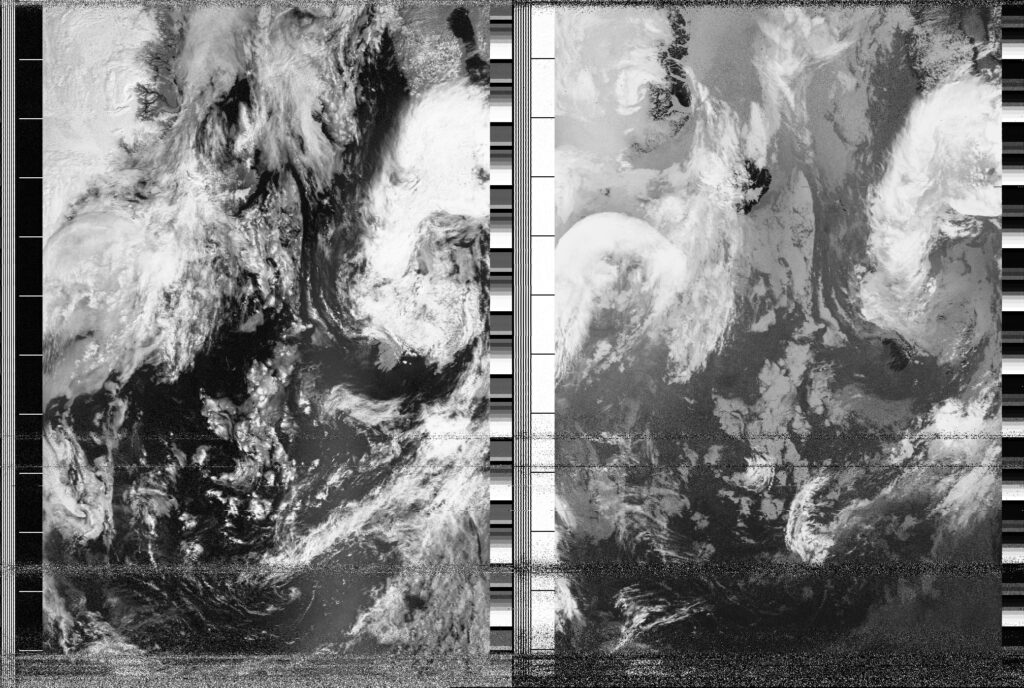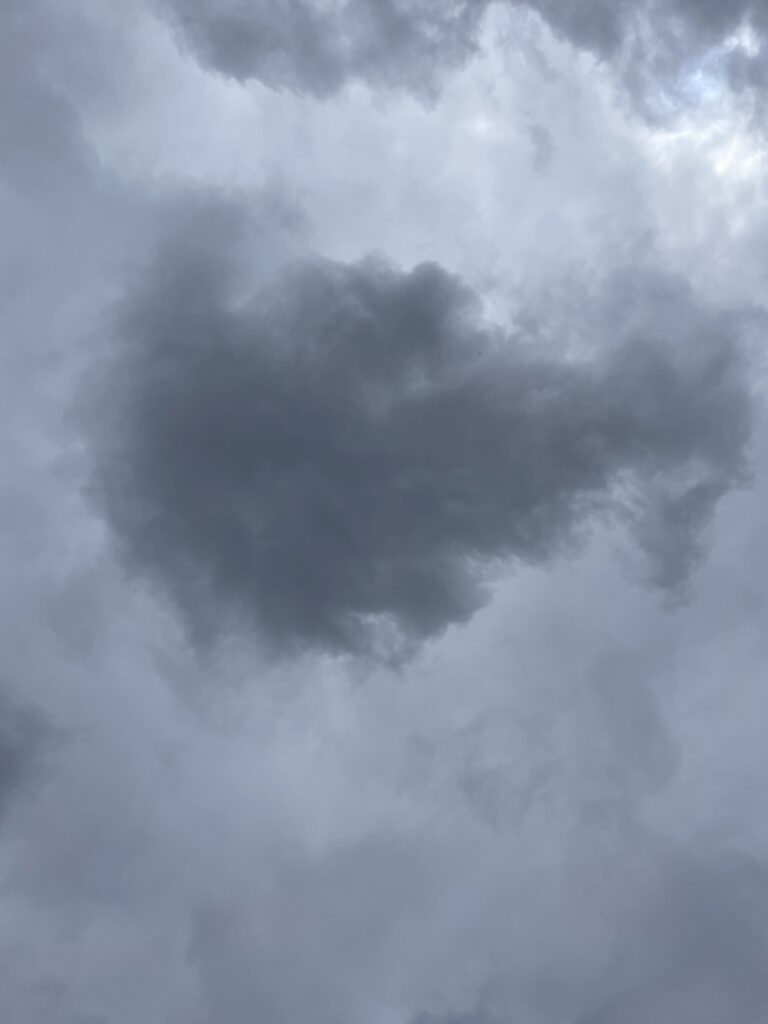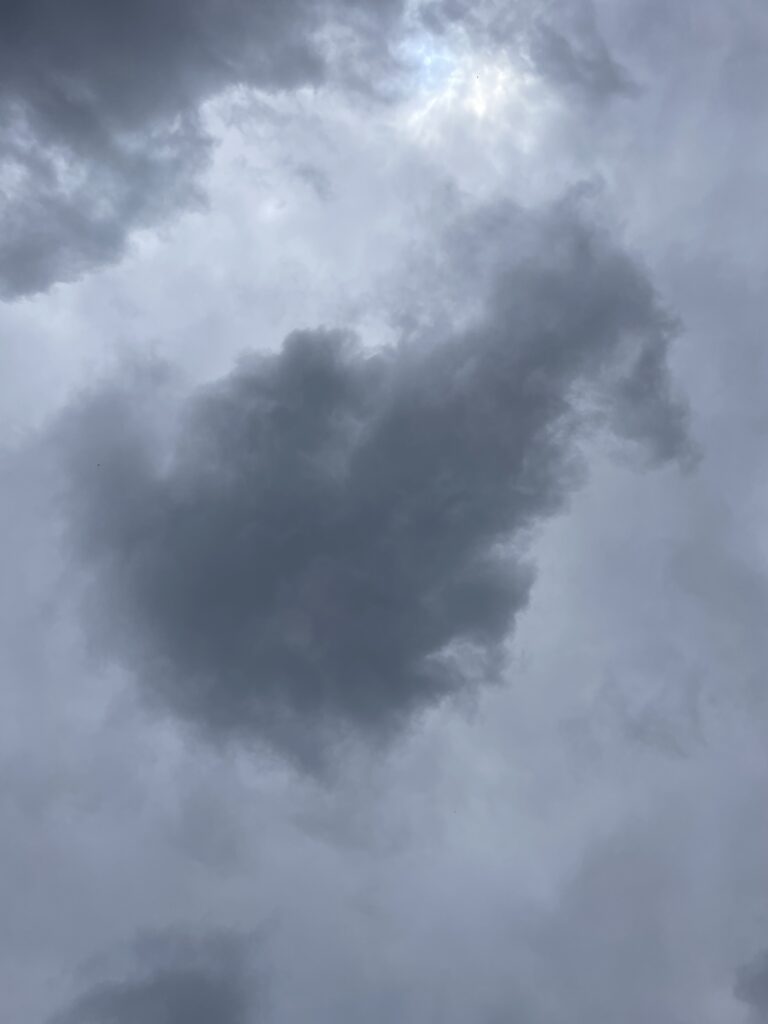Local Date
10 July 2024Local Time
12:25Location
Hackney Downs, LondonCountry or Territory
United KingdomContributor
Sasha EngelmannSatellite
NOAA-19Radio Callsign
Archive ID
Coordinates
It is a grey, energy-less, dark-clouded day. My thoughts, however, are with the pale blue skies, swift winds and coastal swamplands of Buenos Aires as I re-read my field notes written during the month of fieldwork I carried out there last spring. As I make my way through my fast cursive handwriting, sometimes having to puzzle at words, I remember how breathlessly I wrote these notes, trying to record and remember everything. It mostly works. As I close-read, I am transported visually and sensually to Villa Inflamable, the community close to the centre of Buenos Aires that is the site of the research I am doing with a team of collaborators in Argentina. My colleague / friend Joaquin had taken me to VI after a morning spent on the rooftop of my other collaborator, Debora, eating pancakes and experimenting with radio antennas. There was not a speck or glimmer of cloud in the sky- and it was a wide open horizon. It took Joaquin and I only 12 minutes to drive from Debora's house to VI. My field notes read: "We arrived in the midst of heavy vehicle traffic - large tank trucks, mostly with Shell on them, entering and leaving the petrochemical facility. We passed to the right of a large sand dune - a sand production facility- there were thick clouds of dust in the air". From the open clarity of Debora's rooftop, it was a different experience being on the ground in VI. We walked around the neighbourhood with Claudio Espinola, a long-term activist and organiser in the community who also helps to ration water to families (the 'running' water is undrinkable, so families get a number of bottles of water per week). VI, like much of Buenos Aires, is on marshland, and we passed many pools of water and algae-covered ponds. The streets had been recently paved, but this had caused water-runoff problems and a man in a car told us he would prefer the dirt road if the sewage would not flood the streets. Later, as Joaquin and I left Claudia and made our way to an air quality monitoring station not far from the community, "We passed a plant that Joaquin suspects is where they began burning medical waste during the pandemic. It looked very old and dilapidated. Joaquin suspects that environmental regulations were relaxed during the pandemic to enable the repurposing of these kinds of incinerators. We also passed a smaller river - maybe 20m wide - that looked like slow-moving cement. There was on oil slick on top. Claudia had compared the river to cement too". I thought about who made the decision to start burning medical waste in an out-of-order incinerator in an already impoverished and environmentally stressed community like VI. I thought about what it takes to turn a river into cement. I also thought about the divergences in the experiences of people in this community and those only a few blocks away, somewhat sheltered from the 'weather' of the petrochemical facility. I thought about the 'weather' of Villa Inflamable, the weather of flammable. In a recent article on perceptions of air in Mumbai, two scholars write: "For the state, flammability is the result of the residents themselves. It is them, and their forms of work, that create fire risks, and so it is they who need to be removed. Residents, on the other hand, attribute causality to the gases that the garbage ecology itself produces. They are acutely aware of how the state has aligned blame in an opportunistic way with them rather than the material hazards of place, poverty and labor" (Tripathy and McFarlane, 2022: 12). From my fieldnotes alone (and without any experience of living in VI) the causality of the environmental toxicity in the neighbourhood is shockingly clear, yet my colleague Debora has written extensively of the 'labour of confusion' produced when residents of VI are told their environment isn't so toxic, or that nothing can be done about it. This is about perception indeed, and it is about whose perceptions are taken to mean 'truth' or 'causality' and whose are seen to trouble the order of things. I spend most of the day co-writing a draft chapter with Debora, returning in my memory to VI, trying to articulate in words the causalities and breathing relations at work there.


